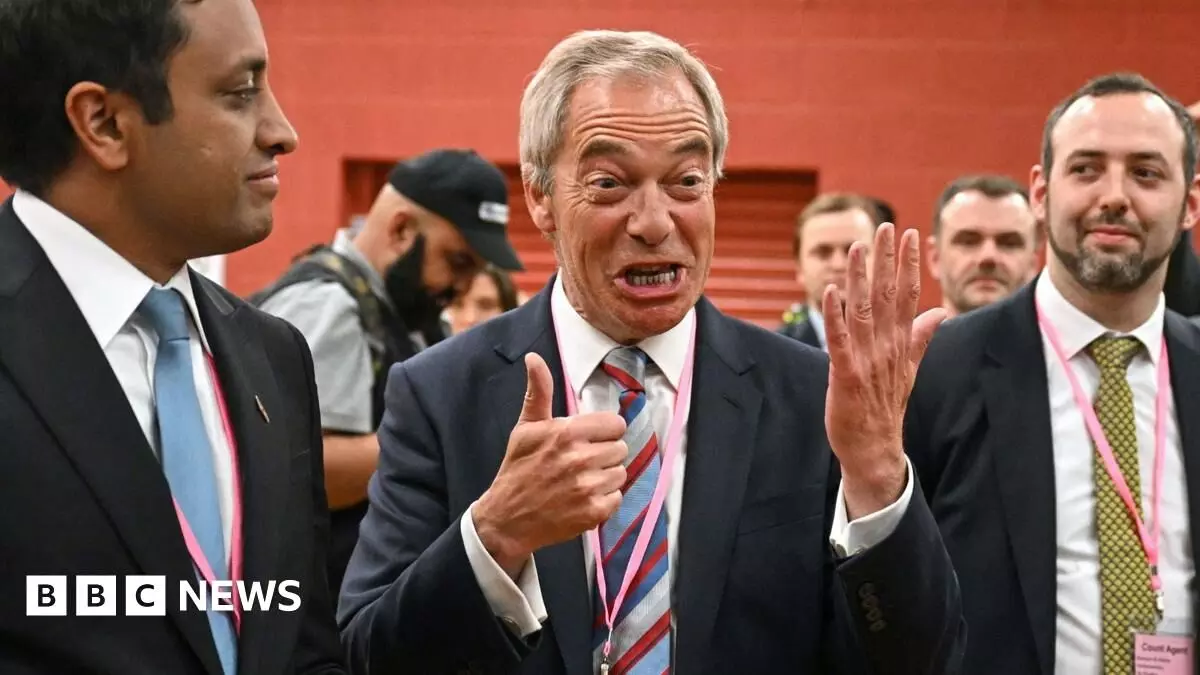Reform UK: A New Dawn in British Politics Following the 2025 By-Elections

Images Credit - BBC NEWS
In a stunning turn of events during the 2025 local elections, Reform UK has emerged as a formidable player in the political landscape, especially with its narrow victory in the Runcorn and Helsby by-election. This election not only marked the party's first parliamentary by-election win but also highlighted the shifting sentiments among voters, who seem increasingly disillusioned with the traditional parties of Conservative and Labour.
Reform candidate Sarah Pochin clinched the win by a mere six votes, a historic achievement that has been touted as one of the closest elections in UK history. To put it in perspective, this win overturned a significant Labour majority from the previous year, showcasing a remarkable swing of 17 percentage points. This is a clear indication that Reform UK's grassroots campaign resonated deeply with the electorate, as Nigel Farage, the party leader, pointed out in his post-election remarks. He stated, "Think about the change – this is heartland Labour party. Their vote has collapsed, and much of it’s come to us."
The results did not stop at Runcorn. Across the country, Reform UK achieved substantial victories in local council elections, securing around 39% of the vote in many councils, significantly ahead of the Conservatives. In Staffordshire, Reform won 24 of the declared 30 seats, signaling a potential shift in control of the county council. These results suggest a growing appetite for alternatives to the traditional political parties, which both suffered considerable losses.
While Reform's surge can be attributed to discontent with the current government, it's essential to recognize that local issues played a crucial role. Voters are increasingly looking for parties that can address their concerns about economic development, public services, and community safety. For instance, Dame Andrea Jenkyns, who won the mayoralty in Greater Lincolnshire, emphasized the need for change, declaring it a "new dawn in British politics". Her victory, secured by a majority of nearly 40,000 votes, further illustrates that voters are ready for a fresh start.
Nigel Farage's leadership and the strategic direction of Reform UK have undoubtedly contributed to the party's recent successes. After a period of perceived amateurism, Farage has promised to professionalize the party's operations, which appears to be yielding results. The significant investment in targeted campaigns, including personalized outreach to voters, has proven effective in mobilizing support.
As we look towards future elections, the question remains whether Reform UK can maintain this momentum. The party's ability to convert this initial success into a sustained political force will depend on their capacity to engage with voters on pressing local issues while also challenging the status quo of the Conservative and Labour parties. With a growing base of support and a clear message, Reform UK could very well reshape the political landscape in the years to come.
In conclusion, the 2025 local elections have heralded a significant shift in British politics. Reform UK's ascendancy signals a potential realignment of voter loyalties, as the party capitalizes on the discontent among traditional party supporters. As we move forward, all eyes will be on how Reform UK navigates this new terrain and whether it can turn the tide against the established parties.
